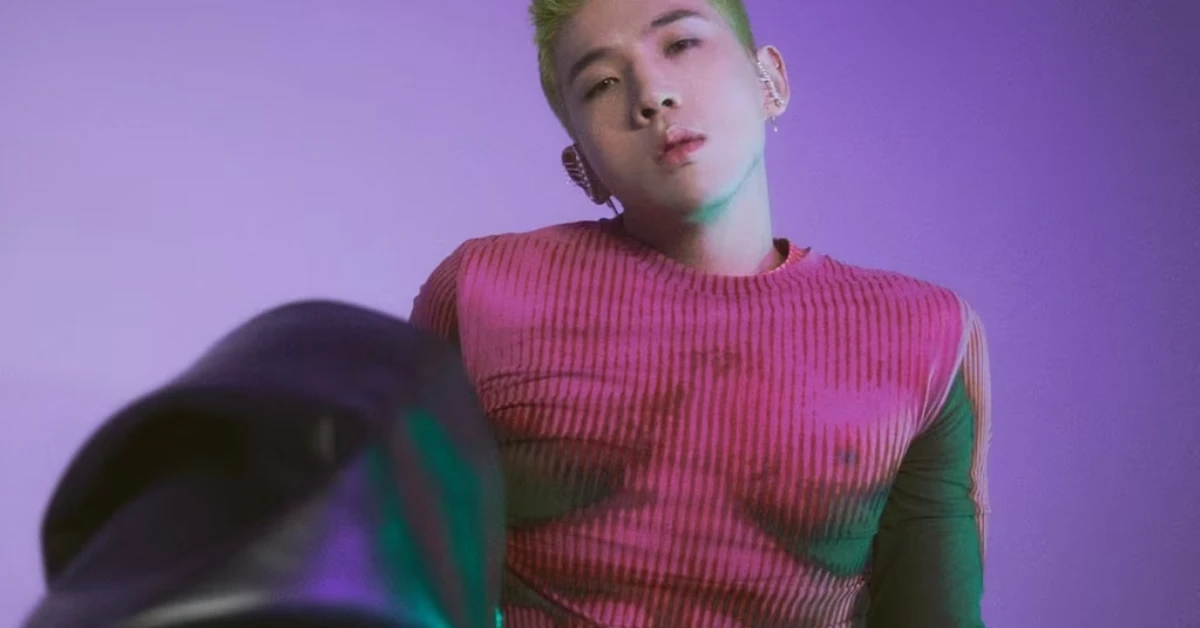K-pop idol BM, a member of the popular group KARD, has found himself at the center of controversy after using the n-word during a recent live stream. The incident occurred while he was singing along to a song by rapper DMX, where the lyrics included the contentious term. The backlash came swiftly, particularly because BM was born and raised in the United States, a factor that heightened the criticism from fans.
The Incident
During the live stream, BM was casually engaging with fans, singing along to music when the problematic word slipped out. Fans were quick to point out the usage, with many expressing their outrage, especially considering his background in Los Angeles. BM’s background has been a point of contention, with some suggesting that he should have known better than to use the n-word, given his upbringing in a culturally diverse environment.
The clip of the incident spread across social media platforms, sparking a wave of criticism. Many felt that an artist with such a large global platform should be more conscious of the words they use, particularly when engaging with a diverse audience. Some fans were particularly upset because of the racial implications tied to the term, which holds a painful history for Black communities.
BM’s Response
In response to the growing backlash, BM took to TikTok Live to address the controversy. Rather than issuing a standard apology or ignoring the issue, he allowed fans to join the stream and share their thoughts directly with him. This move was met with mixed reactions from the public. Some praised BM for his openness and willingness to listen to the concerns of his fans, especially the Black members of his community who felt personally affected by the incident.
The decision to invite fans into the conversation was seen by some as a genuine effort to make amends and engage in a meaningful dialogue. Many applauded his approach, highlighting that it was a more direct form of accountability compared to the typical public apology issued by idols. Fans on the live stream expressed their feelings, some accepting his apology while others criticized him for his initial use of the word.
The Mixed Reactions
Despite the positive reactions from certain fans, not everyone saw BM’s response as sufficient. Some viewers criticized the fact that the live stream, which was meant to address the controversy, was monetized. During the stream, BM received donations and gifts from fans, which led to accusations that the apology was, in part, a way for him to benefit financially from the situation.
Critics argued that BM should have known better, given his American upbringing, and that the use of the n-word should not have happened in the first place. Many pointed out that as a 30-year-old artist who speaks fluent English and has a predominantly Black fanbase, BM should have been more aware of the impact of his actions. Some even questioned the sincerity of his apology, suggesting that the act of allowing fans to speak on his live stream might have been more about damage control than genuine remorse.
On the other hand, some fans defended BM, stating that the situation should be viewed in the context of his genuine attempt to connect with his audience and understand their concerns. They argued that idols should be given room to learn and grow, especially when they take the time to engage in a transparent conversation rather than issuing a formal apology.
Broader Issues in K-Pop
This incident is part of a larger trend in K-pop, where idols have faced scrutiny for issues related to cultural appropriation and the use of offensive language. BLACKPINK, for example, faced criticism for using the n-word in the past, sparking a wider conversation about the responsibilities of K-pop idols when it comes to cultural sensitivity.
The use of the n-word by non-Black individuals has been a contentious issue in various cultural contexts, and K-pop, as a global phenomenon, is not immune to these debates. Fans and critics alike are increasingly calling for idols to be more mindful of the words they use, especially when performing for an international audience with diverse racial and cultural backgrounds.
The fallout from BM’s use of the n-word serves as a reminder of the complexities surrounding cultural appropriation and language in the global entertainment industry. While some fans are willing to give him the benefit of the doubt, others remain skeptical about his intentions. This situation also raises questions about the responsibility of K-pop companies to educate their idols on these sensitive topics, especially considering the global reach of the K-pop industry.
As the conversation continues to unfold, it is clear that the expectations for idols in terms of cultural awareness and accountability are growing. The pressure on idols to act responsibly and respectfully towards their diverse fanbases is becoming more pronounced, and incidents like this one highlight the ongoing challenges of navigating global fame in a culturally sensitive manner.
Also Read: Yoo In-na Reveals Her Photos Were Used in Romance Scam
Source: Koreaboo




























